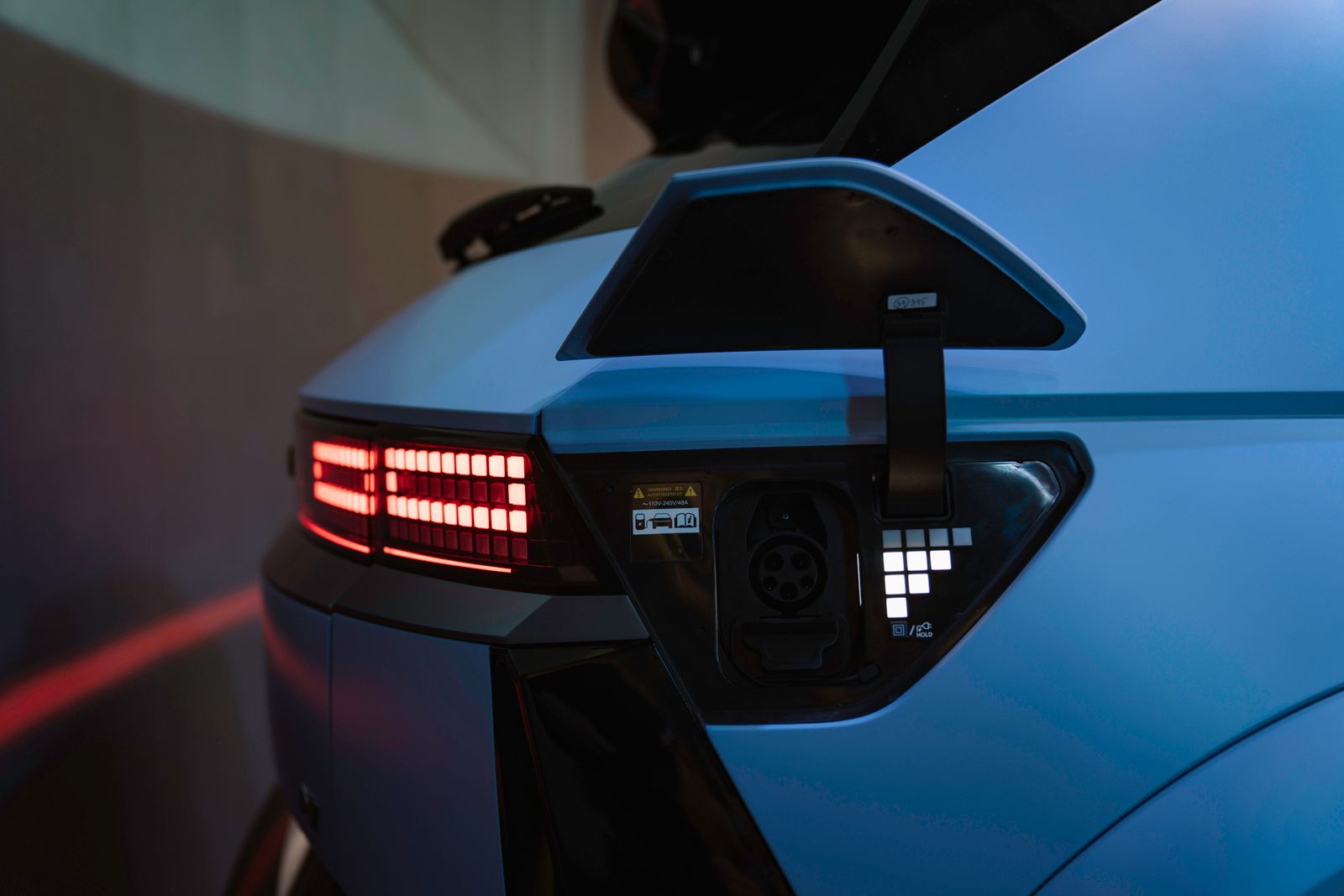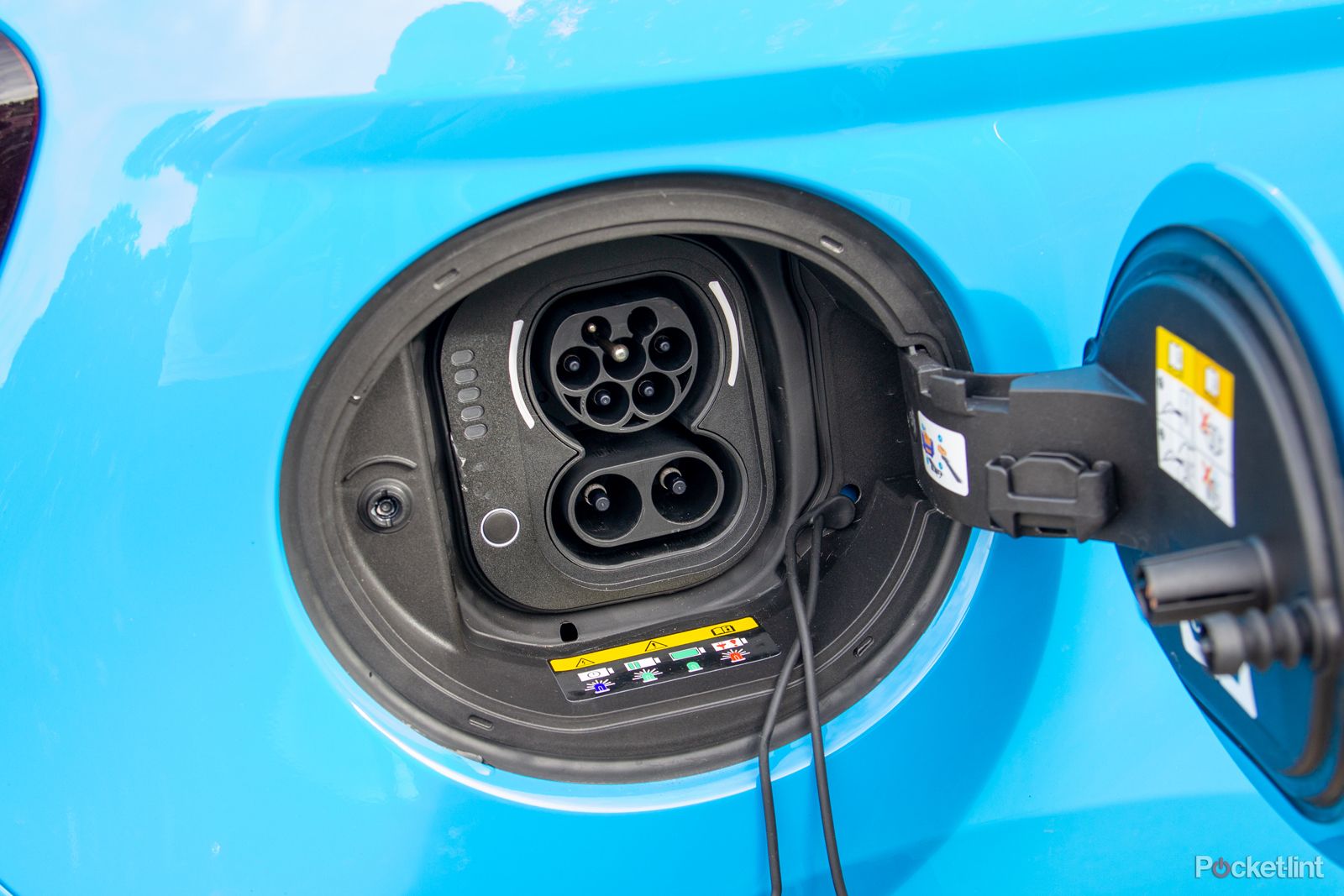Key Takeaways
- Factors such as battery state of charge, temperature, and loads can all affect charging speeds.
- Battery state of charge affects charging speed, with slower speeds as the battery gets closer to its maximum.
- To speed up charging time, consider installing a higher-powered charger, using fast-charging stations, or opting for a more advanced electric vehicle with fast-charging capabilities.
Electric vehicles (EVs) have gained popularity as a sustainable and environmentally friendly alternative to conventional gasoline-powered cars. From 2021 to 2027, the global electric car market is expected to surpass $1.4 trillion.
Despite the gains in Electric Vehicle (EV) technology, you might wonder why some EVs charge slowly instead of the charging speed advertised by the manufacturer. You have to understand that every electric car is built differently. This article will help you understand the factors that affect EV charging processes and things to do with a slow charging time.
Factors that can slow down your electric car charging speed
If you’re struggling with your EV’s charging speed, there are several common factors that can affect your EV charging speed. Battery state of charge, temperature, loads, and more can all affect your car’s charging speed.
Battery state of charge (SoC)
Battery state of charge is the ratio of the available capacity of your battery and the maximum possible charge that can be stored in it. The higher the state of charge of your battery, the slower the charging speed. This is because as the battery gets closer to its maximum capacity, the charging process becomes more challenging as it requires the charging system to slow down and provide a lower charging rate to prevent electrical strain and potential damage to the battery. For example, your battery charges faster when it’s charging from 0% but slows down the charging speed once it hits 70% – 80%. So next time you notice this, don’t panic. It’s just a normal process.
EV battery temperature
The temperature of your surroundings during charging is a factor that can slow down the charging speed of your electric car. When the temperature is too high or too low, it can limit the charging rate to protect the battery cells from damage.
High battery temperature: If your battery gets too hot, the charging speed may be reduced to prevent overheating, which could affect the longevity and performance of the battery. Electric cars have built-in battery management systems (BMS). This feature helps bring your battery to its optimal temperature, usually 20°C, for safe charging.
Low battery temperature: In contrast, cold weather conditions slow down your battery charging speed, too, as low temperatures negatively impact battery efficiency and conductivity.
This is because when charging in cold weather, the battery management system (BMS) uses most of the energy to bring your battery to its optimal temperature before safe charging. This, again, slows down your battery charging time.
Hyundai
Loads in use while charging
When multiple accessories, like cabin air conditioner or heater, radio, light, etc, are drawing power from your car’s battery and the charger is already trying to replenish the battery’s charge, the available power for charging decreases.
This results in a slower charging rate, as the charger splits the power between charging and powering the accessories. To optimize charging speed, minimize using your car accessories while charging.
Load at a charging point
The load at a charging point can affect your electric car’s charging time. For example, if it’s two connections and both are used, the charger’s output is often lower for both users. This ultimately slows down your electric car charging time. So next time you are at a charging station, pick a charger where no one is charging rather than pulling up right next to someone.
Battery deterioration
Every electric car is different, and so are their warranties. As your battery degrades over time, its capacity to store and deliver electricity decreases. This results in longer charging times as the battery takes longer to reach its full capacity.
Additionally, internal resistance in your deteriorating battery can lead to heating issues, causing the charging system to limit the charging rate for safety reasons. To be safe, unplug your charger when the SoC is at 80-85%.
Voltage limit
Your electric car’s voltage limit, measured in kilowatts (kW), affects the charging speed. The maximum charge rate of your electric car is determined by its voltage limit, which is set for the vehicle.
For example, if the voltage limit of your EV is lower than the capacity of the charging station or charger, your car will only draw energy at the rate determined by its voltage limit. This means that even if your charger can provide a higher current or voltage, the car will only charge at its maximum allowed rate.
This also applies when your EV has a higher current or voltage limit than the charger; the charging can only occur at the charger’s limit other than the car’s limit. All these slows down your charging speed.
Why do some electric cars charge faster than others?
As discussed above, every electric car and its warranty, battery capacity, and charging technology are different. Cars with larger battery capacities, such as the Tesla Model S and Model X, can charge faster because they can handle higher power outputs.
The charging station’s power output also plays a role – some stations can provide more power than others, which can affect charging speed.
The type of charging connector used can also affect charging speed. For example, a car equipped with a CHAdeMO connector can charge faster than one equipped with a J1772 connector at the same charging station.
It’s also worth noting that some cars have built-in “fast charging” technology, allowing them to charge faster than others, even if they have the same battery capacity and are connected to the same power source.
This is because the car’s onboard charging system is optimized to handle high-power inputs, allowing it to charge more quickly. So, read your electric car manufacturer’s specifications and warranty to know your expectations for your next charging time.
Do this to speed up your electric car charging time
To speed up the charging time of your electric car, consider doing these:
- Install a higher-powered level 3 charger at your home or workplace, as this can provide faster charging than a standard level 1 charger.
- Ensure the electrical circuit and wiring are compatible with the higher power level to avoid potential safety hazards.
- Opt for a more advanced electric vehicle (EV) model with fast-charging capabilities or technology, such as Tesla Superchargers, which provide high-power charging infrastructure.
- Make use of public fast-charging stations that offer higher power levels. This enables you to charge your electric car quicker while on the go.
- Choose a moderate temperature area when parking your car before charging. Extreme cold or heat may affect the charging speeds.
Bottom line
There are many benefits to having an electric car, including reduced carbon footprint and lower fuel costs. However, things can get frustrating if you always experience slow charging. To solve this issue, apply the tips discussed in this article.
If the problem persists, consider consulting your car’s manufacturer or an electric vehicle specialist to diagnose and address the issue. They can provide specific guidance based on the make and model of your electric car to ensure you are getting the fastest and most efficient charging experience possible.
Trending Products

Cooler Master MasterBox Q300L Micro-ATX Tower with Magnetic Design Dust Filter, Transparent Acrylic Side Panel, Adjustable I/O & Fully Ventilated Airflow, Black (MCB-Q300L-KANN-S00)

ASUS TUF Gaming GT301 ZAKU II Edition ATX mid-Tower Compact case with Tempered Glass Side Panel, Honeycomb Front Panel, 120mm Aura Addressable RGB Fan, Headphone Hanger,360mm Radiator, Gundam Edition

ASUS TUF Gaming GT501 Mid-Tower Computer Case for up to EATX Motherboards with USB 3.0 Front Panel Cases GT501/GRY/WITH Handle

be quiet! Pure Base 500DX ATX Mid Tower PC case | ARGB | 3 Pre-Installed Pure Wings 2 Fans | Tempered Glass Window | Black | BGW37

ASUS ROG Strix Helios GX601 White Edition RGB Mid-Tower Computer Case for ATX/EATX Motherboards with tempered glass, aluminum frame, GPU braces, 420mm radiator support and Aura Sync











